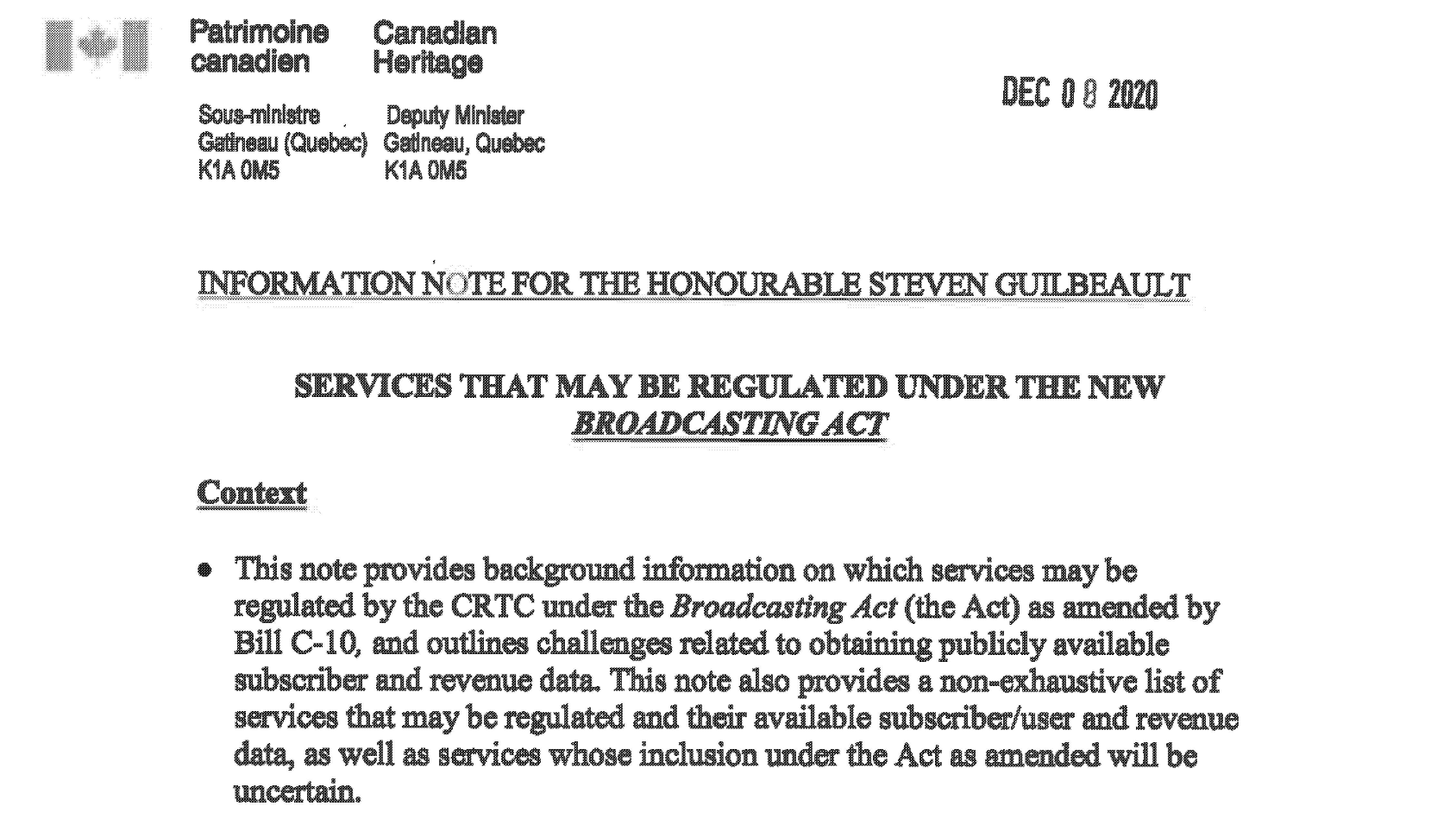Appeared in the Toronto Star on November 9, 2013 as New Risks Emerge as Anti-Counterfeiting Bill Placed on Legislative Fast Track The government’s anti-counterfeiting legislation, which died over the summer when the Conservatives hit the parliamentary reset button, is now back on the legislative fast track. Industry Minister James Moore […]

Canadian Heritage Memorandum, December 8, 2020, ATIP A-2020-00498
Bill C-10
Considering C-8: My Appearance Before the Industry Committee on the Anti-Counterfeiting Bill
I appeared yesterday before the House of Commons Standing Committee on Industry, Science and Technology for a hearing on Bill C-8, the anti-counterfeiting bill that has been placed on the legislative fast-track by the government. The panel also featured representatives from the Canadian Anti-Counterfeiting Network, the Canadian Standards Association, and the Intellectual Property Institute of Canada. The hearing was cut short by a vote in the House of Commons, but there was still an opportunity for a ten minute opening presentation and to address a few questions from the committee members. My prepared remarks are posted below. Given time constraints and the comments of the other panel members, there were some adjustments (I omitted the first section on the scope of counterfeiting and noted that fellow panel members proposed the precise amendments I was discussing).
Canada – EU Trade Agreement Reached “In Principle”, Part Two: The Intellectual Property Provisions
Intellectual property was one of the most contentious aspects of the CETA negotiations, with copyright, patents, and geographic indications all sources of concern. A summary of the impact of CETA on each is posted below (additional posts on the need to release the text and the telecom and e-commerce provisions).
Copyright
Early CETA drafts included extensive copyright provisions that would have rendered Canadian copyright law virtually unrecognizable from its current state. The EU position on copyright changed after two developments in 2012. First, Canada passed long-awaited copyright reform that addressed several concerns, most notably legal protection for digital locks and ISP liability. Second, the EU abandoned many of the remaining demands after the European Parliament voted overwhelmingly in July 2012 to reject Anti-Counterfeiting Trade Agreement, striking a major blow to the hopes of supporters who envisioned a landmark agreement that would set a new standard for intellectual property rights enforcement. 

The resulting copyright provisions appear benign, as the government is claiming that CETA is consistent with current Canadian law:
CRTC Ruling a Small Step Toward Broadcast Overhaul
Appeared in the Toronto Star on August 10, 2013 as CRTC Television Ruling a Small Step Toward Broadcast Overhaul Coverage of last week’s Canadian Radio-television and Telecommunications Commission ruling on mandatory carriage of a couple of dozen channels may have focused on the future of the Sun News Network (no […]
Canadian Government Maps Plan for Future Intellectual Property Reform
The House of Commons may have adjourned for the summer, but just hours before breaking, the government filed its response to the Standing Committee on Industry, Science and Technology’s report on the Intellectual Property Regime in Canada. That may sound dry, but the document provides a clear indication of what the government has planned for the coming years on IP reform.
So what’s in store? Leaving aside an assortment of promised studies, the government response includes five notable plans (or non-plans).






